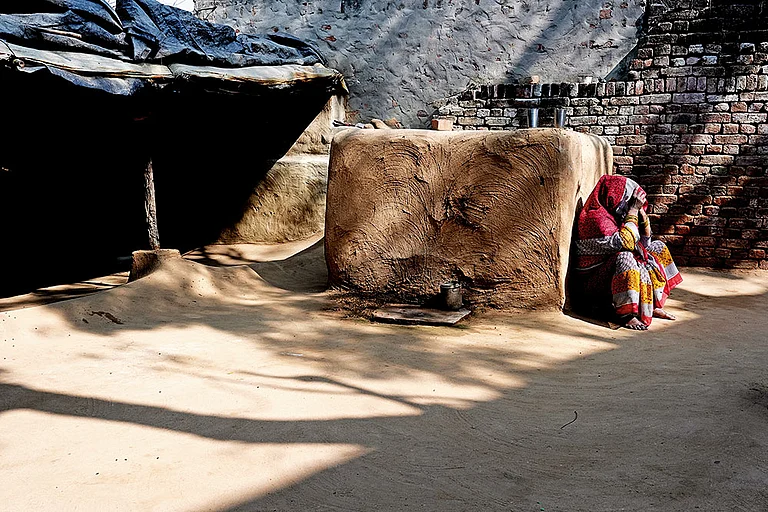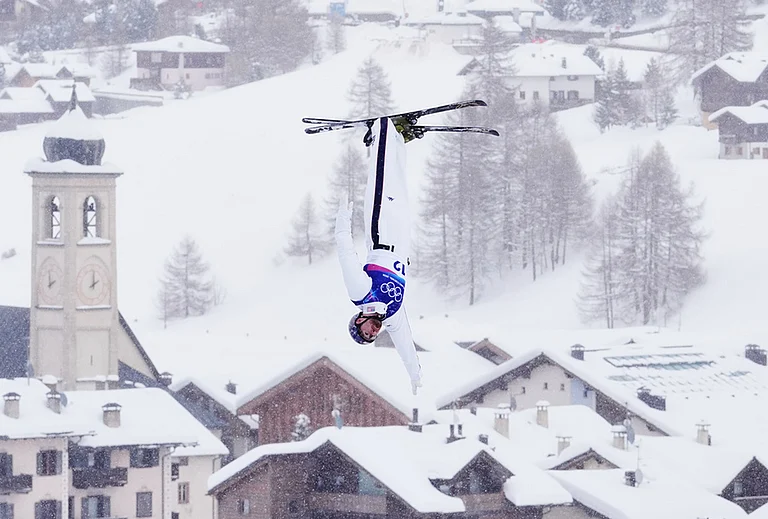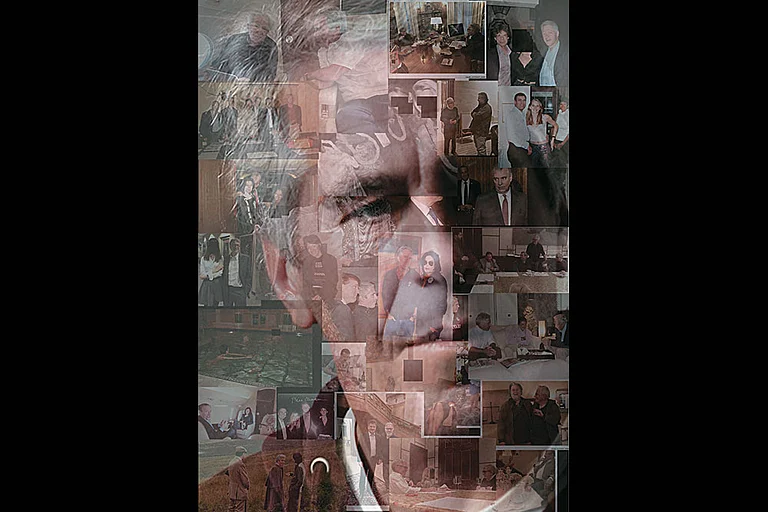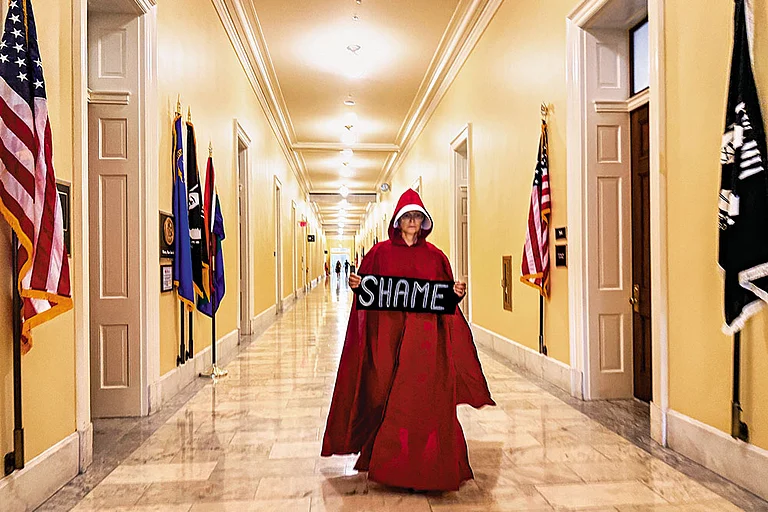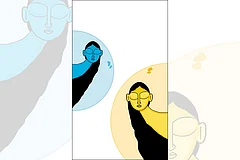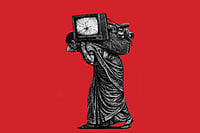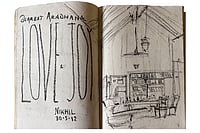“The beauty myth is always actually prescribing behaviour and not appearance.”
—Naomi Wolf, The Beauty Myth
Cinderella could and should have stayed home and written notes about an imagined ball, reinvented the characters and made herself more than a girl who must aspire for beauty and validation from a prince, substituted velvet slippers in deep crimson rather than leaving a glass slipper behind.
When I read her story as a little girl, I had cheered and clapped when the prince found her,
In my forties, I think little girls should not read such fairy tales where a prince finds a girl with a slipper in hand and all is well. They end with “happily ever after”. Girls discovered by men. That’s how we grow up. Metamorphosis is personal. And all that is personal is political.
Rather, little girls should read about Alice in that Wonderland who believed in six impossible things before breakfast, who slayed the demon bird and exited the Wonderland.
A girl once and a woman now, I should edit these fairy tales, these mythological texts where women are prized possessions, decorations, and their worth and curse are tied to their “beauty”.
There are so many moral things around everything that a woman does in our culture. Make-up, appearance and of course, political views. All these make-up brands and all the influencers telling every woman out there to use serums and lotions and go for cosmetic surgeries to look more beautiful and younger are hitting at the core of what we have always faced—invisibility, insecurity, indignity.
Once, in a room full of editors who had been summoned by a high-ranking government official, I was placed at a table with the official’s wife who seemed to have become used to being invisible, too. There were other editors, who were biologically male, sat next to us. A couple engaged in some conversation about cholesterol and diabetes. One praised the millet khichdi that was cooked by the hostess and took a few helpings in order to please her. None of them spoke to me. I was instantly invisible. I wasn’t an object of desire, or a subject of engagement. Me being there was an anomaly. Newsrooms are the domains of men, males. I was to be ignored. Consciously or subconsciously. At the other tables, there were many other editors, not biologically female. They spoke about geopolitics, oil prices, war, government schemes, etc. Towards the end of a long-winded dinner, the host came and thanked all the “gentlemen” who had come there. I didn’t remind him I was there, too. A woman.
Women continue to face invisibility and inequities regardless of their age in all matters of participation. We aren’t political enough. That’s what we are often told. We go through “invisible time” all the time. There is that “gendered ageism” which targets our future selves. Women after a certain age are no longer “beautiful” because we are told that we must always be “girl-like” and so we must never age. I am not even sure what that “certain age” is because I now hear that young women are undergoing all kinds of cosmetic surgeries to prevent ageing.
I am 44. I don’t want to look younger than my age. I no longer want to feel apologetic about not really being bothered about physical upkeep. It is too exhausting. As women, we are perennially being tempted to avail of wrinkle-minimising and skin-whitening and body-sculpting options. That’s all false advertising to compensate for the overriding sense of shame and loss that we are getting old and undesirable and unattractive because the female gender is tasked with being aesthetically pleasing.
In the age of social media and filters and other options, there is this projected image fuelled by capitalism and consumerism that casts wrinkles, skin defects like pigmentation, grey hair, and any other perceived and perpetuated idea of female defect as failures. And we spend and spend on treatments and products to stop looking old or to look more and more like the proposed idea of beauty by the corporate world of beauty brands and fashion houses and lifestyle magazines.
Ageing is normal and yet, for women, it isn’t normalised. We are told to subscribe to the idea of the survival of the prettiest. At any cost. Mental, economic, political. We are just made to feel bad about ourselves.
What is beauty? It was Naomi Wolf, American journalist and author of The Beauty Myth, who said that beauty is a currency system like the gold standard. “Like any economy, it is determined by politics, and in the modern age in the West it is the last, best belief system that keeps male dominance intact,” she pointed out. Isn’t that a good enough explanation of the obsession with fairness?
The idea of beauty is what men use to exclude women from the power structures. We are taught to compete for the attention of men in a world dictated by capitalism and patriarchy that only aggravate our insecurities and pitch us against each other. Men don’t like feminists. We must be feminine. And the ways of being feminine were to be prescribed by patriarchy. Men, we are told, like the feminine. Our social and political landscapes are male-dominated, male-identified and male-centered. We hate our colour, we abhor our bodies, we are frightened of ageing.
Many winters ago, I was with a friend who was separating from her husband, who had allegedly cheated on her. She was upset. She was grieving and insecure. He had told her he wasn’t attracted to her because she had body hair. She booked herself an expensive laser hair removal procedure. She then changed the shape of her teeth. She straightened her hair. She did many other things as well.
That was a violent revenge. On nobody in particular. Women like me are just angry. Over everything. More so with the trappings of ageing, of imposed beauty standards, of everyone telling us we are not there yet and we can get there if we surrender to potions and the male gaze. This is a culture that is obsessed with female obedience, with sexual insecurity that’s propelled by beauty thinking.
We only uphold men’s power in this myth. Ever thought about why women in their naked selves sell cars, colognes, and everything else? When I first joined Outlook as an editor, I was ridiculed. I am a woman and I wasn’t part of the male club of editors. They talked about experience. Spoke about covering wars. They said they understood politics. I have only been amused by their wrath and these outpourings of rage. To them, I say that as women we are political from the moment we are born. We don’t have the entitlements that patriarchy grants men. We have to resist and this is an issue dedicated to that resistance.
The artwork on the cover of this issue of Outlook magazine is an image of an installation called ‘Six Women’ by artist Bharti Kher. The installation featuring full-body casts of six naked women is an ode to the ageing female body, a departure from the idealised female form. These casts are of sex workers from Kolkata’s red light district Sonagachi. “What then makes me different from the client…in this and most cases the man? Does my empathy count for anything? Does my work as an artist give validity to the role I play in the circus of meaning?” Kher wrote in her journal about her position in the ongoing transaction between bodies and money.
The women are made up of many things. Memories and stories. Losses and indignities.
The world celebrates Women’s Day on March 8 every year. This issue of the magazine and the cover aren’t acts of tokenism. They are acts of resistance. Of mediation and meditation. We aren’t Cinderellas.
MORE FROM THIS ISSUE
What’s on the cover and on the inside are all real. Unfiltered. Uninterrupted. Unapologetic.
(This appeared in the print as 'Difficult Women')








